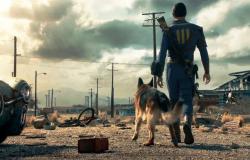Europe must act united “like never before” to compete on equal terms with the United States and China. And thus demonstrate that it is “suitable for the world of today and tomorrow”. It is the “radical change we need” that Mario Draghi will propose in his report on the competitiveness of the EU, the most awaited plan in Brussels but which the former number one of the ECB and former Italian prime minister will only reveal after the European elections. Yesterday, however, Draghi reeled off some previews “of the philosophy behind this relationship” and of the work he has been carrying out since, last autumn, the President of the Commission Ursula von der Leyen entrusted him with the task, a commitment which has in the meantime led to intense confrontations both with the members of the EU executive and with the economic ministers of the Twenty-seven, MEPs, industrialists and trade unions. A takeover for Europe as many, in Italy but also in France (see Macron) hope for? Maybe. Not yet, it seems. But what is certain is that the famous press conference of the “grandfather at the service of the institutions”, in December 2021, in December 2021, with which Draghi made it clear that he was available to become Head of State, rang in the ears of several observers.
THE REPORT
Draghi spoke from La Hulpe, just outside Brussels, where the two-day meeting on the EU Pillar of Social Rights organized by Belgium, which holds the rotating presidency of the Council, was held. From technologies to raw materials, the EU has so far lacked a real industrial strategy to compete on the same level as the Americans and Chinese, “despite a series of positive initiatives”, said the former prime minister. According to him, “Europe’s mistake over all these years has been to look for adversaries within itself”, in the race between the national economies of the EU, even in areas such as “defence and energy where we have strong interests in common”. Faced with a positive trade balance, “we did not consider our external competitiveness to be a serious issue”; but now “the world is changing rapidly” and it is the other powers, from Beijing to Washington, “that no longer respect the rules and are developing policies aimed at strengthening their position” with the aim of “redirecting investments towards their economies to the detriment of ours or, even worse, to make us permanently dependent” on their supplies. To be able to compete again – this is Draghi’s recipe – the EU must work as a team and iron out differences. A speech which certainly falls within the scope of Draghi’s current task, but which could be read as a program for a candidate for the Presidency of the commission, also given von der Leyen’s difficulties.
The report will focus on ten macro-sectors of the economy, explained the former prime minister, because “immediate actions are needed in the sectors with the greatest exposure to green, digital and security challenges”. A concrete example of the necessary consolidation is provided by telecommunications: «We have a market of around 450 million EU consumers, but per capita investments are half those of the US and we are late in the diffusion of 5G and fibre. One reason for this gap is that in Europe we have 34 mobile network groups (and this is a conservative estimate) often operating on a national scale, compared to three in the United States and four in China.” And then there is the chapter on the integration of the capital market, «an indispensable part of the competitiveness strategy: the EU has very high private savings, but they are mostly channeled into bank deposits and do not end up financing growth as they could. in a broader capital market.” This is a topic that has been dragging on for a decade and will return to the table of the leaders gathered today and tomorrow for an extraordinary summit, with the aim of making some progress towards releasing the potential of private savings alongside public investments. But the European Council, in its conclusions, will also call for a “Competitiveness Deal”, a pact for competitiveness. While waiting for the Draghi strategy, the heads of state and government will tomorrow talk about it with another former Italian prime minister, Enrico Letta, who, on mandate from the Council, has drawn up a complementary report on the challenges for the single market.
THE FUTURE ASSIGNMENTS
And on the sidelines of the summit, the last before the EU vote in June, there will be a return to subdued discussions even among top management, while waiting to weigh the results at the polls. The Draghi “card”, who could aspire to a powerful role, is a constant on the table; and it remains so after a speech that reminded some Brussels observers of the contours of “whatever it takes” at the time of the Eurozone crisis. A half-endorsement even came from an illustrious unsuspected person: the Hungarian Viktor Orbán, the “Mr. no” among the leaders of the 27. When asked on the sidelines of an event in the EU Parliament, he did not hold back: «I like Draghi; I don’t know »if he will be president of the Commission,« but he is a good one». In Italy, the Melonian Agriculture Minister Francesco Lollobrigida intervenes: «Draghi? We are happy that authoritative personalities, who have had the opportunity to play a role in Europe in recent years, are now willing to highlight what the mistakes of the past were.” Words that certainly don’t sound like an overly convinced “yes” to the Draghi option. Meloni, as we know, is at the window: perhaps she won’t be the one to play the SuperMario card, but she will hardly be able to say no if it is put on the table. The Draghi supporters of Italy are more enthusiastic: from Renzi to Calenda, passing through Lupi. With a joke that is starting to circulate: «As long as it doesn’t end up like the Colle…». We will see.
© ALL RIGHTS RESERVED
Read the full article at
The messenger
Tags: radical change descent field






